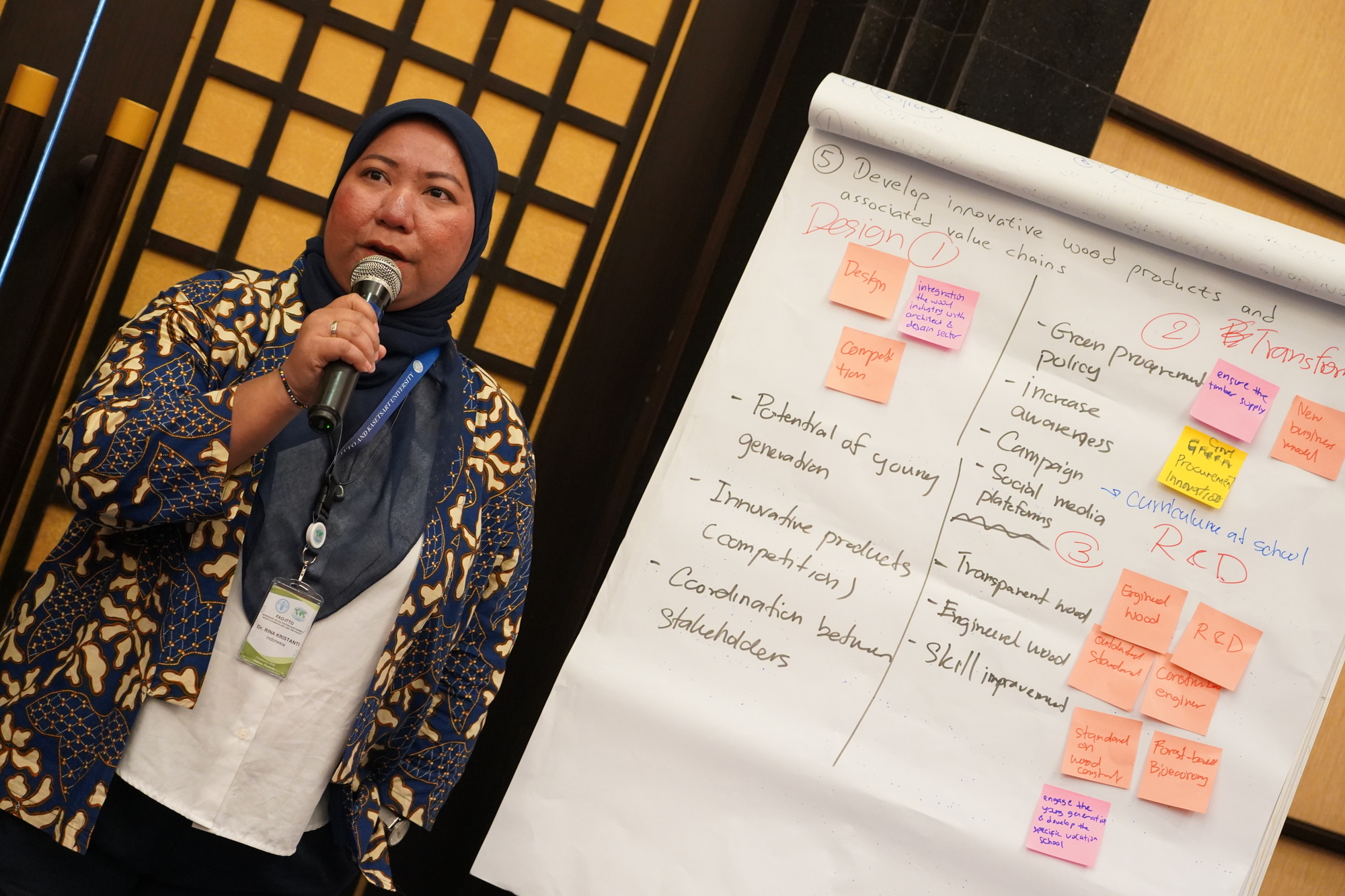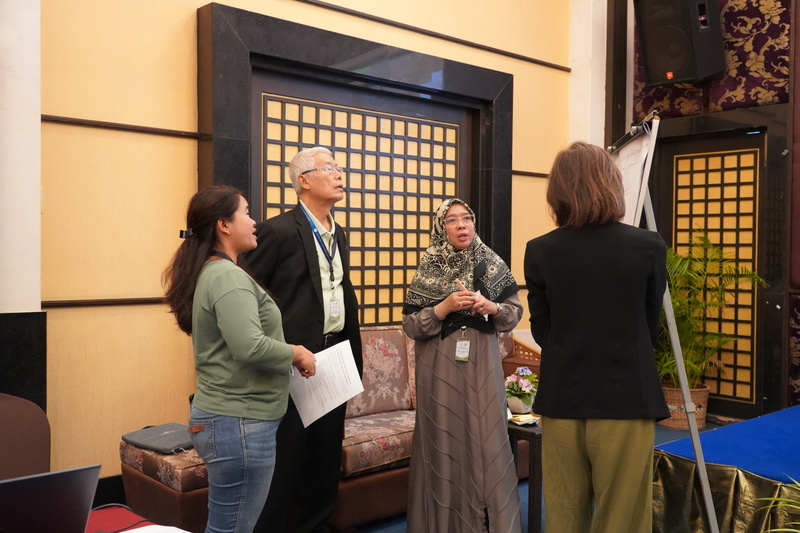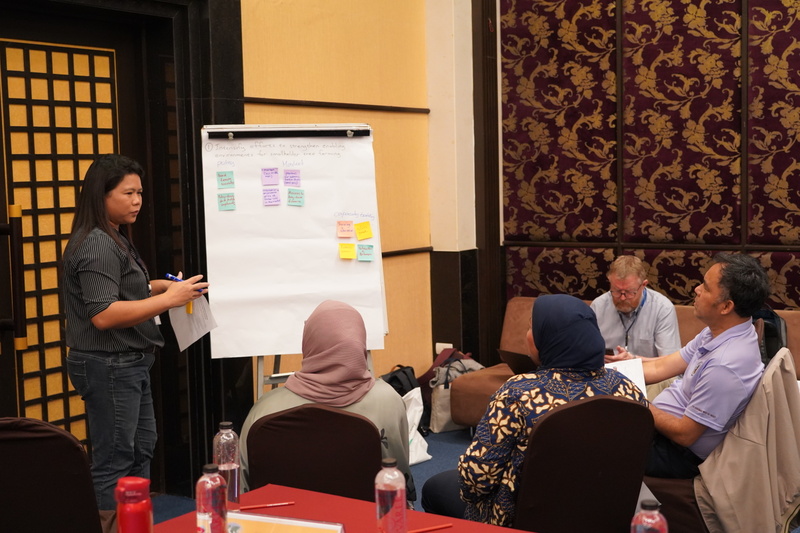ITTO and FAO convened experts to tackle the sustainable wood futures in Asia-Pacific
07 February 2025, Pattaya

Experts shared their thoughts and insights on how building a sustainable wood future in Asia-Pacific region. Photo: Paula Sarigumba/ITTO
Tropical forestry experts from across the Asia-Pacific participated at a recent ITTO workshop to discuss the challenge of meeting rising demand for timber and the critical role of smallholders in boosting sustainable wood production in the region.
Co-organized with the Food and Agriculture Organization of the United Nations (FAO) Regional Office for Asia and the Pacific with support from the Institute for Global Environmental Strategies and Kasetsart University, the Expert Consultation on Sustainable Wood Futures in Asia-Pacific was held in Pattaya, Thailand, on 7 February 2025.
The workshop aimed to address pressing concerns in the forestry sector by:
- sharing knowledge on current and projected wood supply and demand in the Asia-Pacific and assessing the role of smallholder tree farmers in the region’s wood production;
- gathering feedback and inputs on the draft FAO report Agroforestry for Wood Production and Agrifood Systems Resilience and its recommendations; and
- identifying priority needs for assistance and actions to strengthen wood production from smallholder tree farming systems.
The consultation featured a combination of expert presentations, discussions, and interactive group work, giving the experts from India, Indonesia, Malaysia, Thailand and Viet Nam an opportunity to debate, collaborate and recommend possible solutions.

Discussions and findings
The workshop heard how the Asia-Pacific region is already one of the world’s largest consumers of wood products, and with demand expected to rise significantly in the coming decades, discussions focused on the need for sustainable production models and reducing the pressure on natural forests. The expansion of planted forests and agroforestry systems was identified as a priority, alongside strategies to support smallholder tree farmers and agroforestry systems as they play a growing role in wood supply chains.
Participants highlighted challenges including:
- Land tenure security issues that hinder smallholders from making long-term investments in tree farming.
- Limited access to finance and investment, making it difficult for smallholders to scale up their operations.
- Challenges surrounding timber certification.
- Gaps in reliable data and the diverse nature of agroforestry.
To advance smallholder timber production, participants shared successful case studies from countries across the region, showcasing innovative policies and financing models, diversified agroforestry models, and digital platforms that connect smallholders directly to markets.

“It is crucial for ITTO to gather thought leaders and support viable strategies on addressing the big challenge of producing sufficient volumes of sustainable and legal wood to meet market demands in an inclusive manner, ensuring that smallholder farmers are part of this drive”, says ITTO Executive Director Sheam Satkuru.
ITTO’s project in support of the production of quality teak by smallholders in primarily Asia countries, now in its second phase, was also cited as a source of good practice.
Actionable solutions
In group discussions on how to realize the draft recommendations of the FAO report, the experts proposed several actionable solutions, including:
- Strengthening policies that establish or maintain land tenure security and create incentives for long-term investments in smallholder tree farming, such as minimum or guaranteed prices.
- Capacity-building initiatives, such as training programs and incubation hubs, to enhance knowledge-sharing and market access.
- Improve access to high-quality tree germplasm, including drought- and flood-resistant species for increased resilience.
- Developing value chains by encouraging product innovation, market expansion, and green procurement policies to boost sustainable timber demand.
Next Steps
The insights gained during the consultation will inform the development of background papers for a meeting of the Asia Pacific Forestry Commission (APFC) in November 2025.
